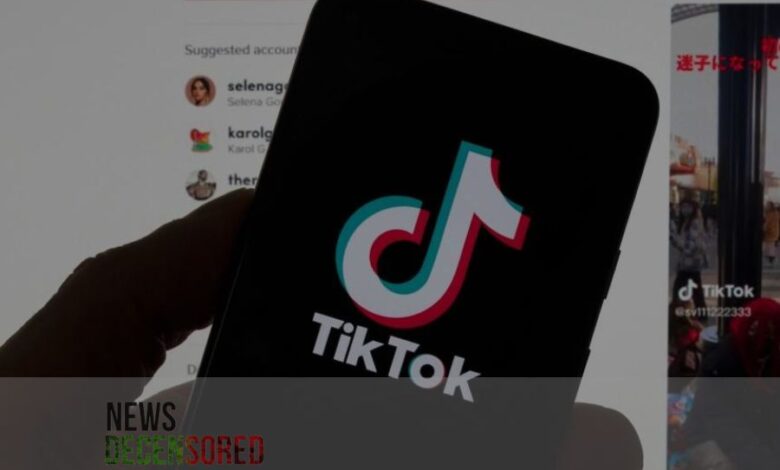Could the US ban TikTok? Uncovering the TikTok bill

TikTok, a short-form video-sharing platform, has taken the world by storm, particularly among younger users. However, the Chinese-owned app has faced persistent concerns regarding user data security and its ties to the Chinese government.
Similar to YouTube, TikTok allows users to upload, share, and comment on short-form video content. Clip lengths can range from a mere three seconds to three minutes, and the platform offers a wealth of editing tools including filters, stickers, music, and visual effects. This combination of features fosters a creative space for users to express themselves and connect with a global audience.
Despite its immense popularity, TikTok has been dogged by questions surrounding user data security. Lawmakers in the United States, for instance, have debated legislation that could force ByteDance, TikTok’s parent company, to divest ownership of the app. This push for a sale stems from anxieties about potential Chinese government access to user data collected by TikTok. The situation is further complicated by former US President Donald Trump’s shifting stance on the app. While he previously advocated for a complete ban, he has since criticized the proposed sale legislation.
The future of TikTok in the US and other countries remains uncertain as the debate over user data security and government influence continues.
TikTok’s initial claim to fame was its role in popularizing dance trends and lip-syncing challenges, captivating a young audience. However, the platform’s functionality and reach have since expanded significantly.
The app now offers live streaming capabilities for users who meets certain age and location requirements. This feature allows creators to interact with their followers in real time, fostering a deeper sense of connection within the TikTok community. Additionally, viewers can directly support their favorite content creators through digital gifts or subscription options, creating a monetization pathway for talented users.
Looking beyond entertainment, TikTok has integrated e-commerce functionality through TikTok Shop. This dedicated online store allows users to seamlessly purchase products directly from the app, often those featured within creators’ videos. This integration creates a unique opportunity for brands and influencers to collaborate, leveraging the power of social media trends to drive sales.
Since its early days in 2019, TikTok has consistently dominated app download charts. Sensor Tower, a firm specializing in social media app performance, reports that TikTok fiercely competed with Instagram throughout 2023 to be the most downloaded app globally. This meteoric rise underscores TikTok’s ability to capture the attention of a vast and diverse user base.
The Ownership Structure Behind TikTok While TikTok has become a global phenomenon, its ownership structure remains complex.
Here’s a breakdown of the key players:
● ByteDance: The Beijing-based tech giant founded in 2012 is the ultimate owner of TikTok. ByteDance is registered in the Cayman Islands, a common practice for Chinese companies seeking international investment. It has offices worldwide, including in Europe and the US.
● CapCut: This popular video editing software is another property under ByteDance’s umbrella.
● Douyin: For the Chinese market, ByteDance operates a localized version of TikTok called
Douyin.
Singaporean entrepreneur Shou Zi Chew is the official CEO of TikTok. However, some analysts believe that Zhang Yiming, the founder of ByteDance, still wields significant influence in terms of key decisions. This dual leadership structure reflects the complex interplay between global operations and potential Chinese government oversight.
Despite its immense popularity, TikTok faces significant controversy due to its ownership by the Chinese company ByteDance. This raises concerns about user data security and potential influence by the Chinese government.
Like many social media platforms, TikTok collects a wide range of user data. However, the app has attracted particular scrutiny regarding the extent of data collection and potential access by the Chinese government. Critics fear the Chinese government could use this information, an allegation that both TikTok and ByteDance vehemently deny.
Real-World Examples Fuel Anxiety Recent events have heightened anxieties surrounding data security on TikTok. For instance, a UK journalist discovered she was tracked through her cat’s account in late 2022. Additionally, a growing number of institutions, including government bodies in the UK and the EU, along with the US White House, have banned staff from using TikTok on work phones in 2023. These actions highlight the seriousness of concerns regarding potential security risks.
TikTok has undertaken initiatives to address these concerns and distance itself from its Chinese ownership. One such effort is “Project Clover,” which aims to store European user data within he continent. These attempts to reassure regulators represent TikTok’s ongoing efforts to navigate the complex geopolitical landscape surrounding its operations.
The debate over TikTok’s security practices and potential ties to the Chinese government is likely to continue. As the platform evolves, so too will the scrutiny it faces.
US politicians introduced legislation in March 2024 targeting companies “controlled by a foreign adversary.” This bill, if passed, would mandate ByteDance to sell TikTok within six months or risk being banned from US app stores and hosting platforms. President Biden has signaled his support for the bill, indicating his intent to sign it into law. This move follows a series of prior attempts by US authorities to restrict access to TikTok due to national security concerns. But Donald Trump has criticized this bill, saying limiting TikTok would unfairly benefit Facebook.



